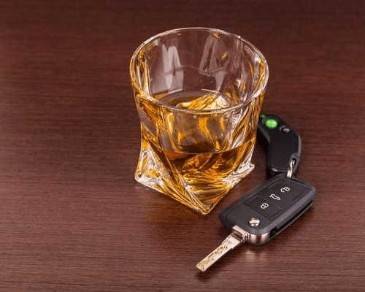WV Open Container Law
West Virginia open container law is deceptively simple. You might think you’re safe if you just put a bottle in the back seat. However, West Virginia’s open container laws have resulted in some receiving citations regardless of whether they touched the alcohol.
 To help illustrate this issue, we’ve put together some important facts about West Virginia’s open container laws.
To help illustrate this issue, we’ve put together some important facts about West Virginia’s open container laws.
What is an Open Container?
West Virginia law defines an open container as any object that contains alcohol and either has a broken seal or is partially empty. Under the law, an alcoholic beverage includes any beer, spirit, malt beverage, or wine. Curiously enough, it also includes non-alcoholic beer. This means that you could potentially be hit with legal action should you be caught with a container.
Open container applies to both the driver and passengers. If your passenger is drinking while inside the car, you’re at risk of being pulled over, even if you didn’t know they had a drink.
The specifics of the open container law can lead to some complex situations. What if you went to a party and you come home with a half-empty bottle? If you’re pulled over, you could face an open container violation if that bottle is in the wrong place.
The law is as follows:
- It is unlawful for the operator or a passenger of a motor vehicle to consume any alcoholic beverage in the passenger area of a motor vehicle located on a public highway or right-of-way of a public highway in this state, whether the vehicle is in motion or at rest.
- It is unlawful for the operator or a passenger of a motor vehicle to knowingly possess any open alcoholic beverage container in the passenger area of any motor vehicle that is located on a public highway or right-of-way of a public highway in this state, whether the vehicle is in motion or at rest. Possession by a person of one or more open containers in a single criminal occurrence is a single offense.
- The provisions of this section are not applicable to a passenger
- In the passenger area of a motor vehicle designed, maintained, or used primarily for the transportation of persons for compensation including, but not limited to, a bus, taxicab, or limousine; or In the living quarters of a motorized or nonmotorized house coach, house trailer, motor home or self-contained camper.
- A person who violates the provisions of subsection (a) or (b) of this section is guilty of a misdemeanor and, upon conviction thereof, shall be fined not less than $50 nor more than $100.
Doing any of the above could result in fines or worse. However, you may have legal options to protect your freedom.
What Are Your Legal Options?
If you have been arrested for violating open container laws, you do have legal options. It’s crucial that you contact an attorney as soon as possible to discuss the next steps and strategize for your case. By speaking with an attorney early on, you can eliminate the chance that you might incriminate yourself or make the situation worse.
In many cases, the police will ask probing questions to determine whether you violated the law and to what degree. Many people feel pressured to add details or explain the situation, but this impulse can be detrimental to their case. An attorney can advise on which questions will be answered and how much is said to investigators. This eliminates the possibility of self-incrimination and protects your rights.
Any Exceptions?
There are a few legally acceptable times where you can drink in a vehicle. You may drink if you are a passenger in a licensed limo, taxi, or party bus. It’s also legal to drink in an RV or mobile home so long as you are not in the front of the vehicle.
If you were charged with an open container violation, you might want legal representation. If you’d like an experienced DUI attorney from The Wagner Law Firm to evaluate your case, please send us an email or call (304) 461-6000.
